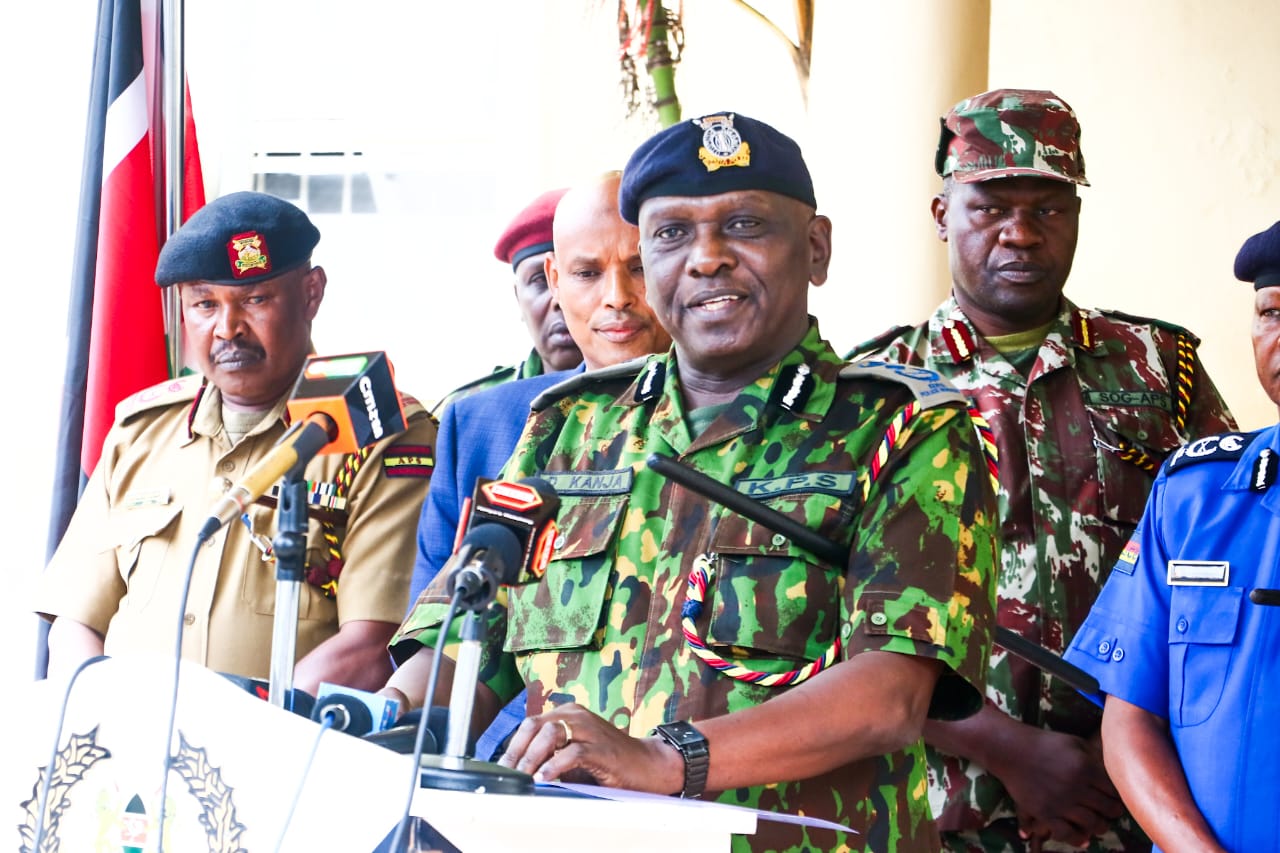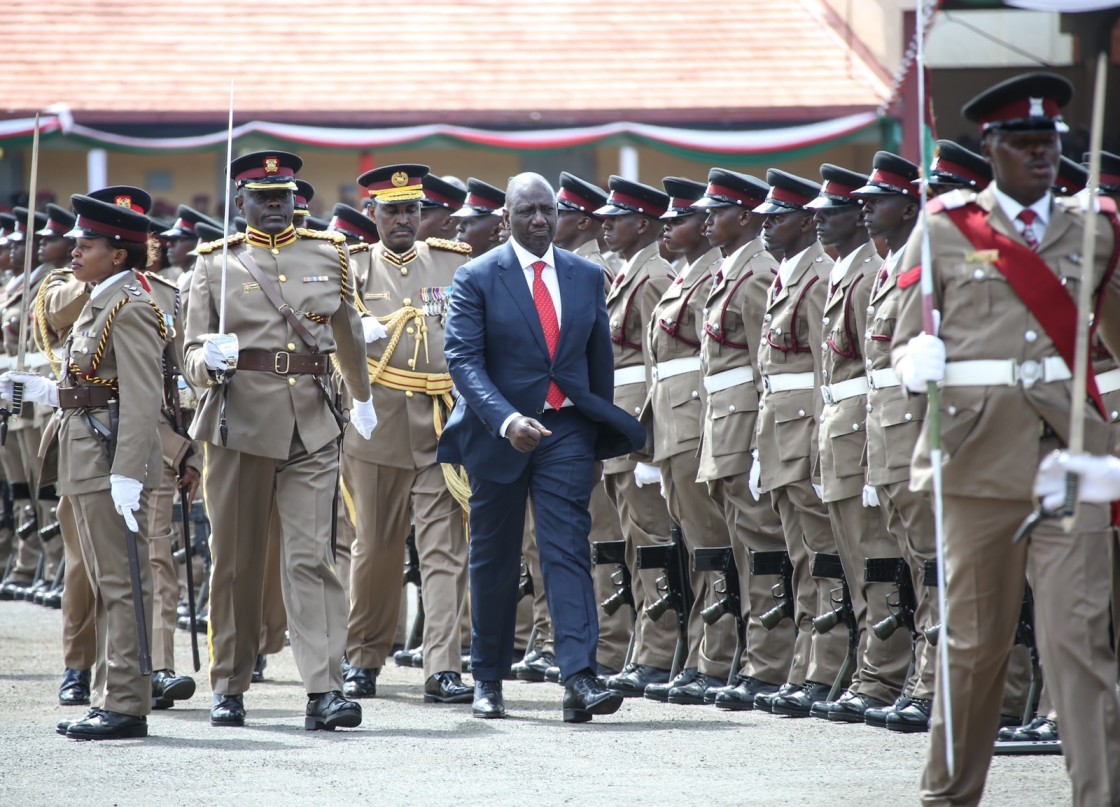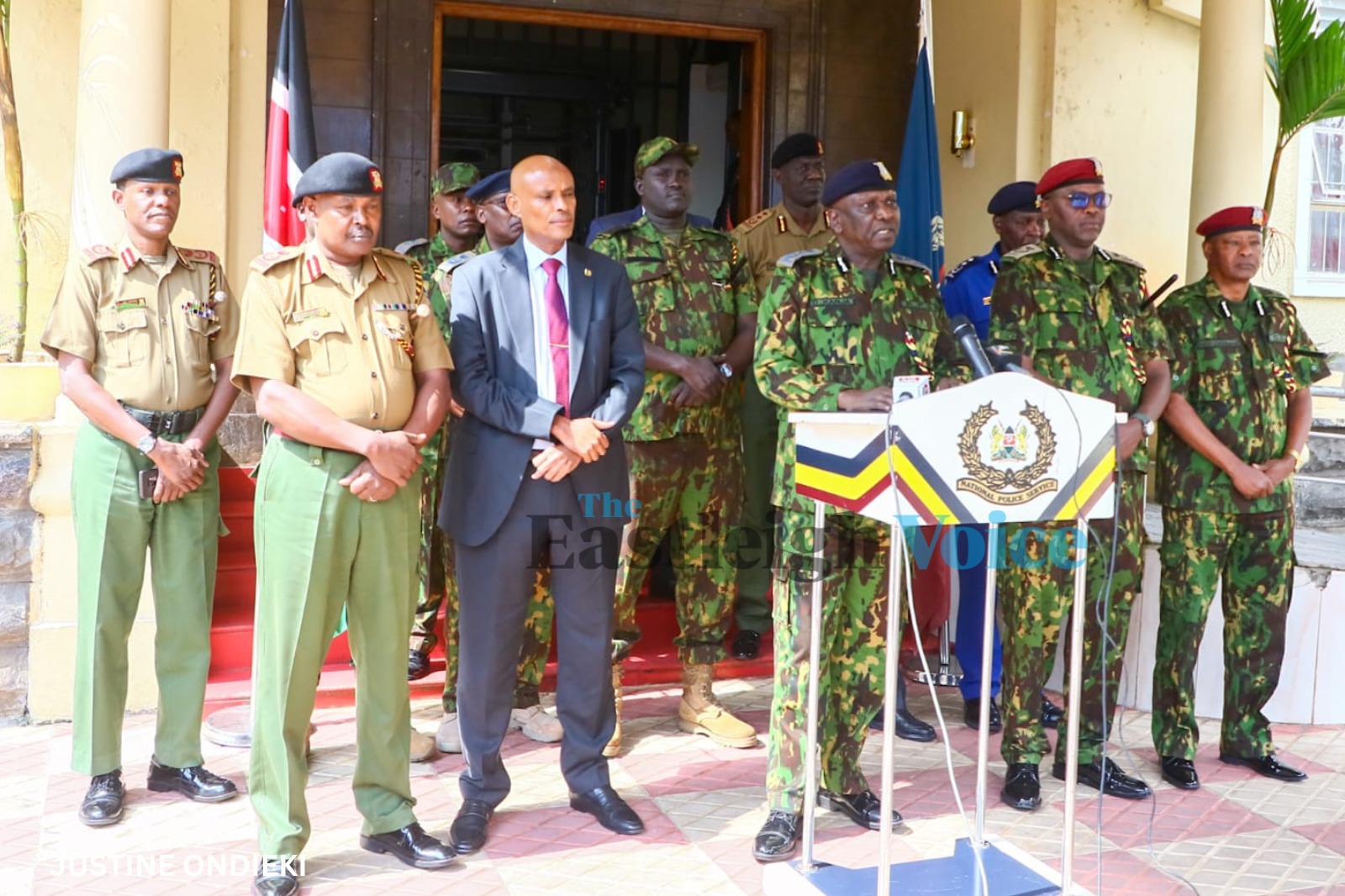IG Kanja issues directives on implementation of Maraga task force's recommendations

"It is important that the following directives are adhered to as we forge ahead with the implementation process," Acting IG Kanja directed in the memo dated July 27.
Acting Inspector General of Police Douglas Kanja has issued new directives to police commanders across the country towards the implementation of the recommendations of David Maraga's Taskforce on Police and Prison Reforms, setting the pace for actual improvements in the service.
The task force, led by former Chief Justice David Maraga, made 598 specific reform recommendations, comprising 271 for the police service, 210 for the National Youth Service (NYS), and 117 for the prison service.
More To Read
- Senators order agencies to reconcile records on injured police officers’ claims amid conflicting figures
- Reprieve for Garissa police as Sh227 million stalled housing project resumes
- Senate orders insurers to compensate injured police officers within 14 days
- High Court: NPSC has no authority to recruit, promote police officers
- Government seeks out-of-court deal to end police recruitment stalemate
- Murkomen vows crackdown on criminal gangs at Nairobi Jukwaa la Usalama forum
"The unpacking of the Taskforce has revealed over 271 recommendations on NPS, which have been summarised into policy, legislative and institutional, terms and conditions of service and general welfare/human capital, management and development, administrative, operations and logistical capacity, leadership, and accountability."
"It is important that the following directives are adhered to as we forge ahead with the implementation process," Kanja directed in the memo dated July 27.
Police transfers
Consequently, no officer shall serve in one county for more than three years unless deployed in specialised units to meet operational demands or other special circumstances.
Procurement of uniforms
All police uniforms will be procured under the direct supervision of the Quality Assurance Directorate in a bid to ensure that proper gear is acquired to support police operations.
In this regard, the procurement process will include mandatory inspection and acceptance of the uniforms to be delivered and will allow a mechanism for service members to raise complaints related to the procurement and supply of the uniforms.
"In the event the uniform is not accepted, the officers who approved such procurement should be held accountable, including bearing a surcharge of the cost involved. Additionally, services are required to ensure that all officers have an adequate and regular supply of all uniforms and kitting they require to carry out their work," the IG directed.
During the deliberations on the changes needed at the service, an overwhelming majority of Kenyans and officers said they do not prefer the current all-Persian blue uniform that was introduced in 2018.
In December last year, a new set of navy blue uniforms bearing the name of the officer wearing it and the force number embroidered was adopted but is yet to be procured for all.
 President William Ruto inspects a guard of honour during the Administration Police passing out parade in Embakasi, Nairobi County, on January 11, 2023. (Photo: PCS)
President William Ruto inspects a guard of honour during the Administration Police passing out parade in Embakasi, Nairobi County, on January 11, 2023. (Photo: PCS)President William Ruto inspects a guard of honour during the Administration Police passing-out-parade in Embakasi, Nairobi County on January 11, 2023. (Photo: PCS)
"Pending the full design and procurement of the new uniforms, members of the service may use the previous old uniform in line with the overwhelming views of members of the public," directed the IG.
Community policing structures
At the same time, Kanja directed that all commanders make deliberate efforts to revamp community policing structures in their respective jurisdictions for effective crime management, accompanied by a rider to ensure that whistleblowers are not victimised.
In a bid to improve the public perception of police officers as corrupt, the IG also directed that deliberate steps be taken to fight graft internally.
"Officers at all levels are directed to develop and nurture good morals so as to shed off the tag of being the most corrupt institution in the country. In this respect, you are directed to ensure that station or ward commanders do not demand fuel money from members of the public in order to respond to a crime report, and where there is a donation to whatever level of the service, such a decision should not translate to favours or preferential treatment," he further ordered.
Police accountability
On police accountability, Kanja directed that officers be frequently sensitised on the role of the Independent Policing Oversight Authority (IPOA) and, at the same time, comply with the provisions of the sixth schedule of the National Police Service (NPS) Act on mandatory notification of death and serious injury that occurs within their premises.
IPOA summons and other disciplinary measures
At the same time, he ordered that any officer summoned by IPOA owing to actions committed while on official duty be accompanied by a service legal officer or advocate while recording their statement or for interrogations.
"This is to ensure that our officers receive fair treatment," he ordered.
Other internal mechanisms to ensure accountability include the setting up of disciplinary committees that reflect the face of Kenya.
The implementation of these directives is part of the fulfilment of the first phase of the adoption of all recommendations made by the task force, which President William Ruto directed to be implemented in full.
An assessment by the Ministry of Interior has since narrowed down 327 suggestions out of the 598 made, requiring Sh108 billion to implement, which will be staggered over a period of four years.
Other proposals that will be prioritised and do not require funding include the revision of service charters and the development of new service standards.
Meanwhile, Ruto nominated Kanja to serve as Inspector General, and upon his vetting and approval by Parliament, he will be key in implementing the Maraga reforms. Kanja will succeed Japhet Koome who resigned amid the nationwide anti-government protests where police were accused of brutality, including shooting peaceful protesters, kidnappings, and arbitrary arrests.
 Acting Inspector General of Police Douglas Kanja during a press briefing at Jogoo House, Nairobi on July 23, 2024. (Photo: Justine Ondieki)
Acting Inspector General of Police Douglas Kanja during a press briefing at Jogoo House, Nairobi on July 23, 2024. (Photo: Justine Ondieki)
Top Stories Today











































